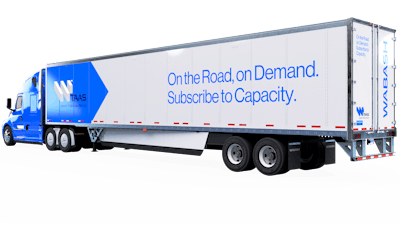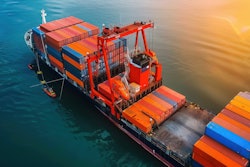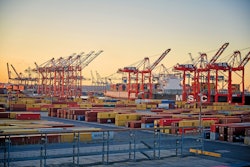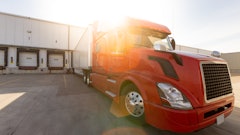
As-a-service solutions offer businesses streamlined options, from outsourcing logistics functions like warehousing, inventory management, and fulfillment to involving external providers. As it relates to third-party logistics (3PL) providers, as-a-service solutions allow for subscription or usage-based pricing, maintenance support and operational efficiency.
We talked exclusively with Brion St Amour, senior director of commercial at Wabash, to learn more about its Trailers as a Service solution and why the future of supply chains will be driven by the demand for greater flexibility and resilience.
Food Logistics: What would you consider the most impactful 'as-a-service' solutions currently driving innovation in the 3PL sector, and why?
Brion St Amour: One of the most impactful as-a-service solutions currently driving innovation in the 3PL sector is Wabash’s Trailers as a Service (TaaS). This innovative approach disrupts traditional leasing models by offering a nationwide, flexible trailer subscription, including on-demand trailer pools, national maintenance support and actionable data insights. TaaS isn’t just about equipment—it’s about access to capacity when and where you need it, without the capital investment or operational headaches of ownership.
TaaS is particularly beneficial for 3PLs as it enables them to operate with the flexibility of an asset-based carrier while maintaining the agility of a non-asset model. This means 3PLs can secure trailer capacity independently of their carrier networks, allowing them to respond faster to market shifts, seasonal peaks, and customer demands without being constrained by equipment availability.
Food Logistics: How do these solutions improve operational efficiency, customer satisfaction or cost savings for 3PL companies?
St Amour: TaaS improves operational efficiency and cost savings by eliminating the need for 3PLs to invest in or manage their own trailer fleets. Wabash handles the trailer lifecycle—from maintenance to compliance—freeing up 3PLs to focus on growing their business.
With TaaS, 3PLs can:
- Scale capacity on demand without long-term commitments.
- Reduce costs by avoiding the premium rates often tied to contracted carriers with their own equipment.
- Enhance service reliability through well-maintained, ready-to-go trailers, boosting shipper confidence.
- Win more business with drop trailer capabilities, giving them an edge in competitive freight markets.
Moreover, TaaS allows 3PLs to position themselves as more asset-reliable, appealing to shippers who prioritize partners with dependable equipment access.
Food Logistics: What challenges do 3PLs face when adopting or integrating these 'as-a-service' technologies?
St Amour: Adopting as-a-service models requires a shift in mindset. Many 3PLs are accustomed to relying on carrier networks or fixed leases, so embracing a flexible, subscription-based model can feel like uncharted territory.
Key challenges include:
- Change management: Adjusting internal processes to leverage the full benefits of TaaS.
- System integration: Aligning TaaS with existing transportation management systems.
- Operational adjustments: Optimizing how trailer pools are deployed for maximum efficiency.
Wabash addresses these challenges through hands-on support, robust data integration capabilities, and a partnership approach that helps 3PLs seamlessly transition to a more agile, cost-effective model.
Food Logistics: What trends or developments do you foresee shaping the future of as-a-service offerings in the logistics industry over the next five years?
St Amour: The future of as-a-service in logistics will be driven by the demand for greater flexibility, real-time data, and resilience in supply chains. We see several key trends shaping this evolution:
- Predictive maintenance: TaaS shifts maintenance from reactive to proactive. With advanced telematics, we can detect issues before they cause downtime, improving uptime and reducing costs.
- Enhanced security: Cargo theft is a growing concern. TaaS integrates GPS geofencing and real-time tracking to mitigate risks. In 2023, cargo theft incidents rose 27% in North America, but TaaS technology helps 3PLs stay ahead with better visibility and control.
- Supply chain resilience: TaaS enables 3PLs to adapt quickly to disruptions, whether it’s a surge in demand or capacity constraints. The ability to flex trailer capacity without long-term commitments is a competitive advantage in an unpredictable market.
- Sustainability: When environmental regulations tighten, TaaS allows 3PLs to access newer, more fuel-efficient or eco-friendly trailers without the capital burden of fleet turnover.



















